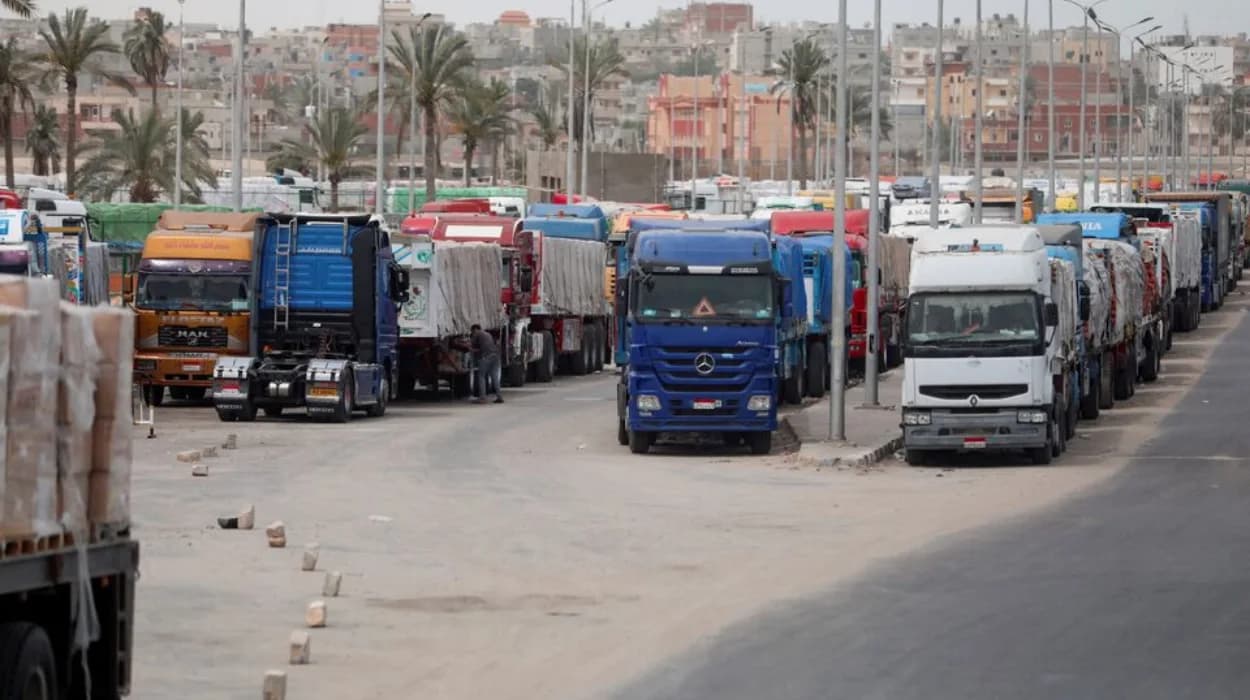Egypt firmly rejected the Rafah plan, arguing it breaches
the Egypt-Israel peace treaty, escalating tensions in the region. Egyptian
authorities insist on the treaty's preservation while addressing the
complexities of the Gaza border crossing and the ongoing regional conflict.
Rafah Plan and Its Rejection
As reported by BBC News on July 16, 2025, Cairo's strong rejection of the Rafah plan stems from concerns that the plan violates the 1979 peace treaty between Egypt and Israel, which has long governed the management of the Rafah border crossing between Egypt and the Gaza Strip. According
to details gathered, Egyptian officials assert that any unilateral alteration
to the management or operational framework of Rafah undermines the legally
binding commitments established in the peace treaty.
The Rafah crossing is a critical control point for Gaza’s
access to the outside world, and the plan purportedly introduces unauthorized
changes to that control, prompting Egypt’s official response.
How Does the Peace Treaty Affect the Rafah Border Crossing?
The historic Egypt-Israel peace treaty, signed in 1979,
includes stipulations aimed at ensuring mutual security and control over border
crossings such as Rafah. This treaty mandates coordinated administration of
such crossings to prevent conflict escalation. Cairo's rejection signals its
determination to uphold these treaty obligations, which it views as essential
for maintaining regional stability.
Official sources emphasise that violations of the treaty
could exacerbate instability in both Egypt and Israel’s shared border regions.
Thus, Egypt has positioned itself against any strategy perceived as threatening
the treaty framework.
Broader Regional Implications of This Rejection
Tensions in the Middle East have already been inflamed by
ongoing conflicts and Israeli military actions, including strikes around
Damascus and Gaza, highlighted extensively by Al Jazeera on 16
July 2025. Israel’s operations in neighbouring Syria and Gaza have
heightened security concerns, contributing to Cairo’s heightened vigilance
regarding border control policies.
Furthermore, the humanitarian situation in Gaza, with
reports of casualties and aid site incidents, has intensified the discourse
surrounding border crossings like Rafah, which are vital lifelines for goods
and people. Egypt’s rejection, therefore, not only reflects legal and
security concerns but also places Cairo at a critical juncture in regional
humanitarian and political dynamics.
What Statements Have Egyptian and Regional Officials Made Regarding the Rafah Plan?
While no direct quotes from Egyptian officials were found in
the referenced search results, media outlets describe Cairo's position as
unequivocal in calling the Rafah plan a treaty violation. The rejection
underscores Egypt's intention to preserve its sovereignty and treaty
commitments.
The refusal coincides with ongoing Israeli military activity
in the region, including attacks near Damascus and in southern Syria, as noted
by BBC News and Al Jazeera. These military
developments amplify the political stakes surrounding border policies,
including those affecting Rafah.
International Community's Response
Current search results do not provide specific reactions
from international actors about Egypt’s rejection of the Rafah plan. However,
given the complex diplomatic landscape in the Middle East, international
stakeholders such as the United Nations, the United States, and European
nations traditionally encourage adherence to peace treaties and diplomatic
negotiations to manage conflict zones effectively.
With the increased violence and humanitarian crises
unfolding, as reported by BBC News and Al Jazeera,
global attention to border issues like Rafah is anticipated to grow,
potentially prompting calls for renewed dialogue among involved parties.
How Does This Development Affect Gaza?
The Rafah border crossing represents Gaza's primary gateway
to Egypt and the outside world, essential for humanitarian aid, commerce, and
civilian movement. Egypt’s rejection of the Rafah plan implies that any
proposed changes to the crossing's control will not be accepted without mutual
agreement respecting existing treaties.
This stance impacts Gaza directly, potentially affecting the
flow of assistance amid escalating violence in the region, where incidents such
as crowd surges at aid sites and military attacks have resulted in significant
civilian casualties, documented by BBC News.
Why Is Maintaining the Egypt-Israel Peace Treaty Important?
The 1979 peace treaty between Egypt and Israel is a
cornerstone of diplomatic relations in the Middle East. It brought a historic
peace agreement after decades of conflict and established mechanisms, such as
joint border administration, to prevent further hostilities.
Egypt’s firm rejection of any plan that violates this treaty
conveys its commitment to regional peace and security, signalling that it
values negotiated agreements over unilateral actions that could spur discord or
violence.
Next Steps in the Rafah Dispute
While the current news sources do not detail immediate next
steps, it is clear that diplomatic channels will be crucial moving forward.
Egypt’s categorical rejection places the ball in the court of involved
actors—likely including the Palestinian authorities, Israel, and international
mediators—to seek a consensus respecting the treaty while addressing
humanitarian imperatives.
Continued monitoring of developments around Gaza, the Rafah
crossing, and regional military activities will be essential to understand
evolving dynamics.
What Does This Mean for the Future of Regional Stability?
Cairo’s refusal to accept the Rafah plan without adherence
to the peace treaty reflects the fragility and complexity of Middle Eastern
diplomacy. Preserving treaties while managing urgent humanitarian needs and
security concerns remains a delicate balancing act.
As Egypt positions itself as a guardian of the treaty, the
challenge will be fostering cooperation that respects legal frameworks and
addresses the dire conditions in Gaza and the surrounding areas. This moment
underscores the continuing tensions inherent in the Israeli-Palestinian
conflict and the broader regional implications, with Cairo at a significant
pivot point.
